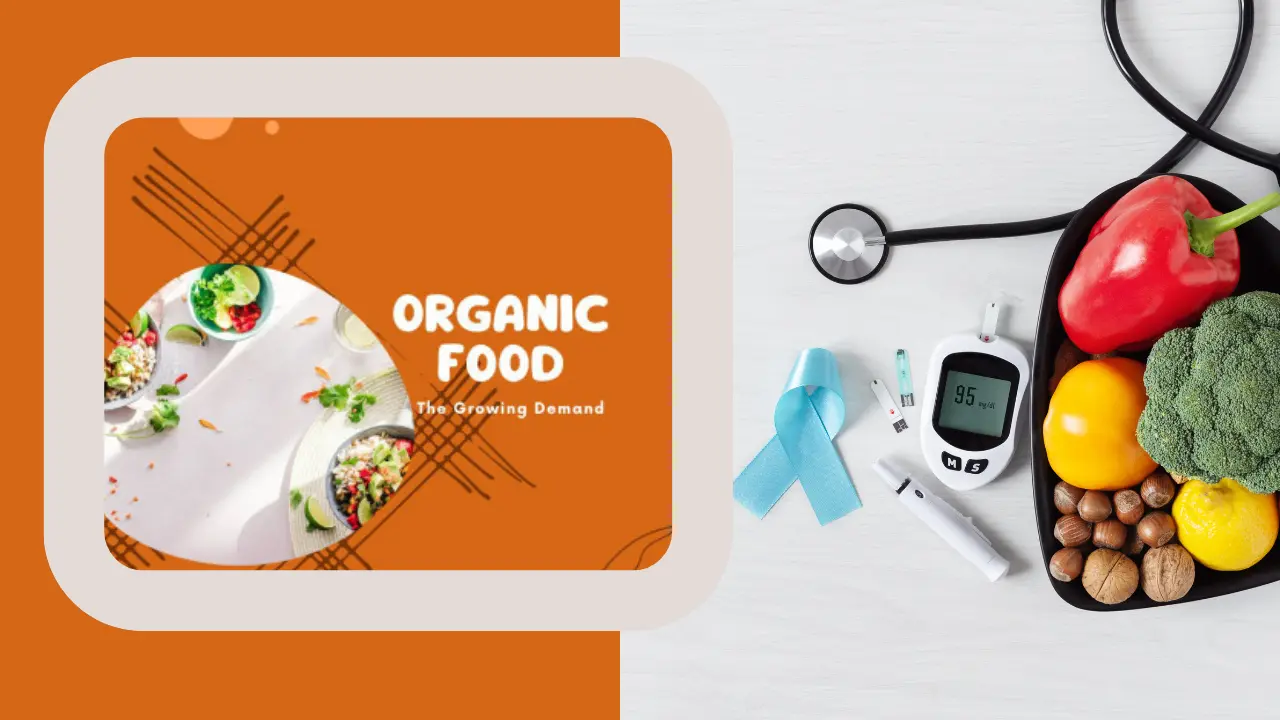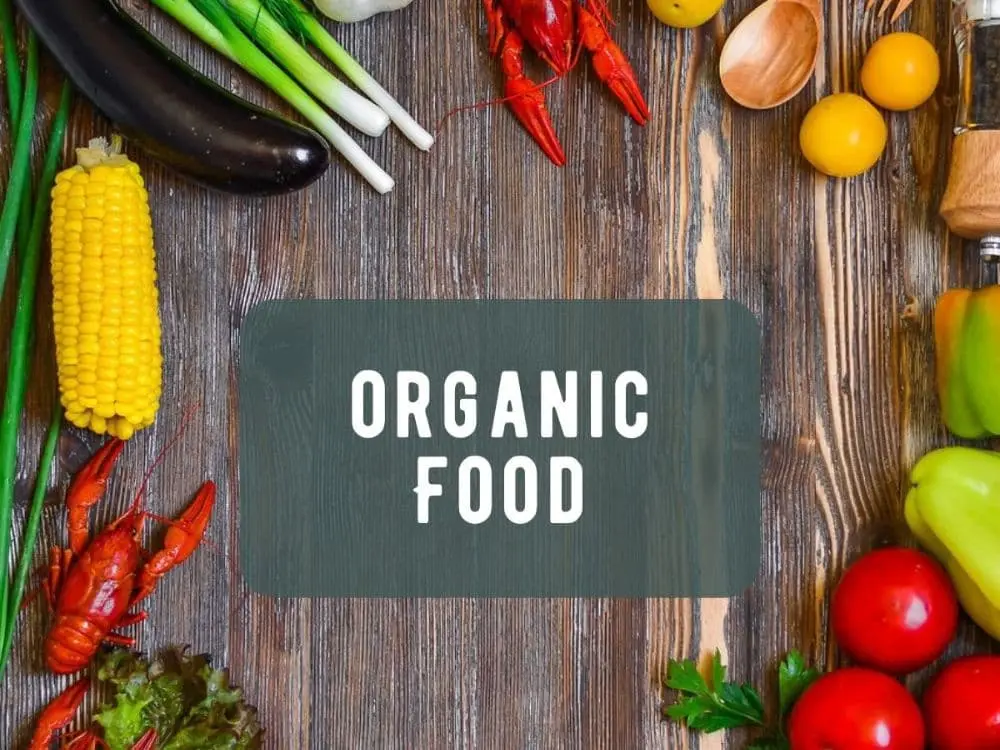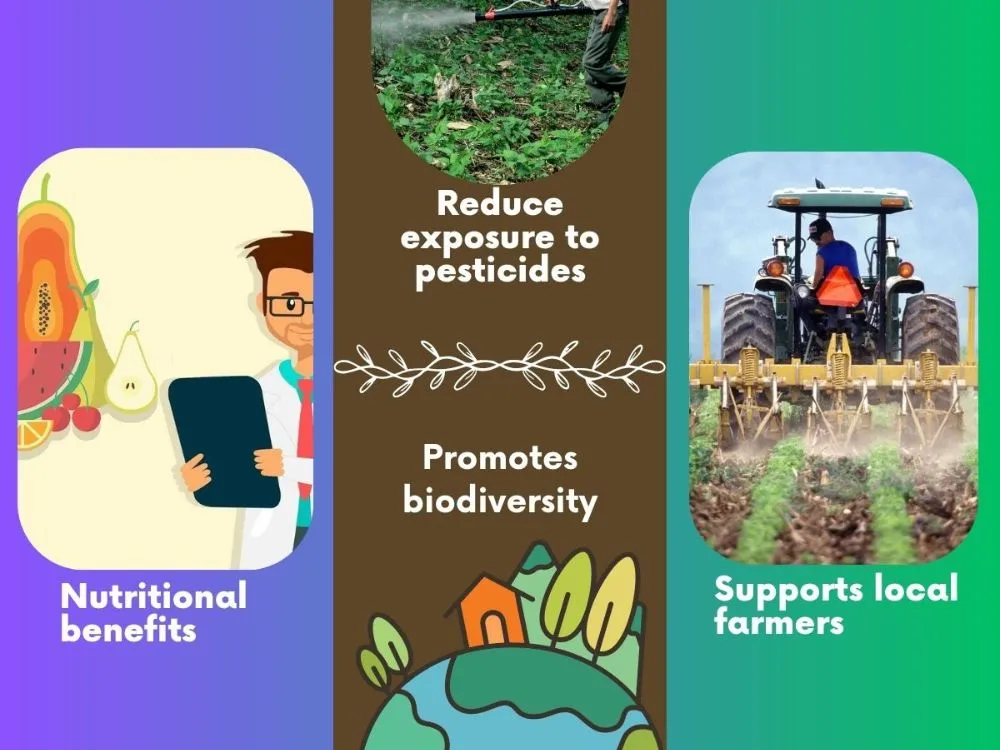
The Growing Demand for Organic Food: A Golden Opportunity for Entrepreneurs
If you are someone who shops a lot, you have probably noticed that organic food is showing up more and more in supermarkets, stores, and restaurant menus. This is because there is a growing demand for organic food. People prefer buying them because of their health and environmental benefits. This is a great opportunity for business entrepreneurs to grow and meet this demand.
When it comes to organic food, they are produced using healthier methods without synthetic chemicals or pesticides. It generally uses natural fertilizers and eco-friendly ways to control pests. Also, it's good for the environment and human health.
On the flip side, if we compare that with conventional foods, they mostly depend on harsh chemicals during cultivation. Organic food producers mostly put consumer health first and offer a cleaner, healthier option.
But choosing organic isn't just about eating better. It's also about supporting sustainable practices that benefit our planet. And the exciting part is that entrepreneurs can make a real difference.
Key Takeaways
- Understand how organic food is produced and its importance for health and the environment compared to conventional foods.
- Learn why the demand for organic food is growing and how it presents a great business opportunity for entrepreneurs.
- Understand the primary reasons for choosing organic food, including health benefits, environmental sustainability, and better taste.
- Identify the challenges entrepreneurs face in the organic food industry and get inspired by successful startups like Thrive Market, Imperfect Foods, and Sun Basket.

The Growing Demand for Organic Food
Organic food has a constant demand because of its important benefits to people and the environment. Nowadays, people are becoming more health and environmentally conscious, which drives an increasing demand for organic food products.
Consuming inorganic foods may lead to diverse health problems and pose disadvantages such as environmental harm, tasteless food, and the risk of acute and chronic health issues.
But organic foods are not only delicious, they are also healthy and environmentally friendly. These compelling reasons contribute to the constant growth in demand.
Opportunities for Entrepreneurs
The demand for organic food is continuously rising, and there are fewer suppliers to fulfill this market demand. People value organic food products because of their benefits. Entrepreneurs can utilize this opportunity to start an organic food production or delivery business to fulfill customer demands.
The industry is moderately competitive compared to inorganic food manufacturing. Entrepreneurs can start this business on a smaller scale with available resources and funds. People who do vegetable gardening and animal farming at their homes can also supply organic food products to the market.
Organic food production and delivery is a lucrative and ideal business idea for women that can be started on a smaller scale. So, entrepreneurs can have a huge opportunity in this niche.
Reasons for the growing demand for organic food

Health Concerns
Health concerns of individuals are one of the important reasons for the growing demand for organic food. Nowadays, people eat a lot of inorganic junk foods that are produced with harmful chemicals, which impact human health adversely.
This is why people shift from consuming inorganic foods to organic foods to lead healthy lifestyles. Moreover, these organic foods have adequate essential nutrients and multiple health benefits. As a result of these high health benefits, people like to buy them.
Environmental Awareness and Sustainability
Environmental awareness is becoming more important, and it directly increases the demand for organic food production rather than conventional production methods that use toxic chemicals. The chemicals used by farmers and food producers can greatly impact the environment in various ways, such as water pollution, devastating biodiversity, and causing soil erosion.
Organic farming and food production can significantly reduce the number of impacts to the environment, and they help establish sustainability. Also, the resources from the environment are protected for future generations.
It's also important to consider that different types of guidelines and regulations mandate the importance of environmental awareness when producing food.
Better Taste
Organic food is better in taste because it's produced with zero chemicals and without the use of genetically modified organisms. Plus, it retains the natural quality, flavor, and nutrient attributes that give a vibrant taste to the consumers.
Most organic food production methods opt for fresh delivery after production. For example, when fishermen catch fish, they deliver them in their original form rather than making any processing or canning using chemicals. This type of fish is tastier than the processed ones.
Likewise, all vegetables, fruits, meat, milk, and other organic products are delivered to the customers in their original form without making any additional conversions or chemical preservation methods that impact the natural taste.
The taste of organic food is an important reason for customers to choose it over conventional foods, which results in a growing demand.
Benefits of Organic Food

Nutritional Benefits
Organic foods contain a good amount of nutritional value compared to inorganic foods. Different studies have demonstrated the nutritional benefits of organic food, which has essential nutrients like vitamins, minerals, antioxidants, etc.
The chemicals used in inorganic food can destroy the nutritional value. But organic food manufacturing doesn't rely on chemical fertilizers or pesticides. Additionally, the production only utilizes natural resources like nourishing soil, fertilizers, and so on.
This approach of using natural sources for cultivation improves the nutritional value of the food. So, customers can benefit from consuming organic food that offers high nutritional benefits and fewer health issues.
Reduced Exposure to Pesticides
Pesticides are commonly used to control pests when farming. Conventional farming uses pesticides to spray on top of the plants to increase growth and yield. These pesticides can be deposited on plants, and when people consume these foods, it can cause severe diseases.
Organic farming doesn’t allow these pesticides to be used on plants when cultivated. This significantly reduces the exposure to pesticides. It's a huge benefit of organic food production to the consumers and the environment.
Promotion of Biodiversity
Organic food offers a significant advantage in supporting the diversity of local plant and animal species. By using natural fertilizers, crop rotation, and pest management techniques, organic farming methods uphold soil health, mitigate water pollution, and stimulate the growth of a wide array of crops.
Also, the area requirements for organic farms are lower, which allocates more land to biodiversity conservation. Plus, organic farming methods preserve natural ecosystems, native plants, and animal species, and enhance environmental sustainability.
Embracing organic food consumption allows us to actively contribute to the preservation and development of local biodiversity, which is a vital element in maintaining resilient and thriving ecosystems.
Support for Local Farmers
Consuming organic food offers a significant advantage by supporting local farmers. Opting to buy organic food products directly from local farmers provides individuals with immediate access to fresh and nutritious food. Simultaneously, it encourages and supports farmers in adopting sustainable farming practices.
Local farmers who cultivate organic food adhere to environmentally friendly methods that exclude the use of harmful chemical pesticides or fertilizers. Similarly, by deciding to buy organic food from local farmers, individuals can contribute to the vitality of the local economy, where the money flows or circulates within the community and powers small businesses.
Challenges for Entrepreneurs in The Organic Food Industry

Competition with Established Players
Entrepreneurs in the organic food industry face multiple challenges, but among them, competing with established players stands out as the biggest hurdle. Large firms possess brand reputation, customer loyalty, and economies of scale, which cause difficulties for newcomers to grab market share and develop a customer base.
Newcomers should distinguish themselves and offer distinctive products or services to cater to niche markets or create innovative marketing strategies. Also, newcomers must guarantee that their products are high quality, have competitive pricing, and have sustainable sourcing to effectively compete with established players.
Limited Resources and Scalability
Limited resources are a big hurdle when it comes to organic food production for entrepreneurs. Resources like land, labor, and capital are very scarce, and the availability of these resources is low to initiate a business in the organic food industry.
Effective resource allocation and utilization are vital to eradicating this challenge and successfully starting and running an organic food business. Scalability is another big hurdle where organic food producers have to expand their business or market share when the demand goes up or the business scales up in the long run.
To consider scalability, there should be an adequate resource available to meet the demand, and it’s a great challenge to utilize scarce resources efficiently when the business scales up.
Lack of Knowledge and Experience in The Industry
Sufficient knowledge is required in the organic food industry to start this business. A lack of knowledge and experience can lead to failure. There are many certificates, business law rules, and regulations in place to start this business. Plus, entrepreneurs need to have a thorough knowledge of the industry to match these requirements.
Also, manufacturing organic food requires technical knowledge, like understanding organic methods of cultivation and animal farming. While doing business there may be many challenges that entrepreneurs need to face. To successfully meet these requirements, it is essential to have thorough knowledge and experience in the industry.
Strategies for Entrepreneurs to Succeed in The Organic Food Industry

Identify a Niche Market
Identifying a niche market is one of the necessary strategies that entrepreneurs need to follow to succeed in the organic food industry. According to the growing market for organic food among consumers, entrepreneurs need to niche down the particular market demands, such as interests, preferences, and specific customer targeting relevant to geolocation.
By niching down, entrepreneurs can identify the targeted group in the market and be able to match those customers' requirements to grow and sustain their business in the competitive market.
Focus on Quality and Branding
Focusing on product quality with zero defects will positively impact the brand and increase demand. It's a crucial strategy for organic food producers. They should not only focus on providing products that are free from chemicals, but also they should improve the overall quality and taste of their food products to win the consumer’s heart.
Also, effective branding is the key, where a strong brand can enhance customer trust and help drive a significant percentage of sales growth. Therefore, it's important to focus on delivering quality organic food products and building a brand that customers believe in.
Build Strong Relationships with Vendors and Customers
Building a good relationship with the vendors is important to get the necessary raw materials and inventories on time. Also, it helps negotiate the prices with the suppliers and get applicable discounts.
Delays in essential inventories and raw materials can cause losses. Therefore, entrepreneurs should understand the importance of maintaining a good vendor relationship to acquire all necessary supplies of good quality at cheap prices.
Further, customer relationships are mandatory to retain customers and to have repeat business. By having good customer engagement, organic food manufacturers can expand their market. Plus, they can tell others about the business, which is good for long-term growth.
Leverage Technology and Innovation
Leveraging technology in the organic food industry can bring multiple benefits. So, entrepreneurs should understand the importance of utilizing the technology correctly. Nowadays, e-commerce is a rising technology where online selling and buying are convenient. Utilizing this technology in the organic food business can enhance productivity.
Also, innovation is another crucial part that consolidates the organic food business by enabling it to produce innovative products that grab the attention of potential customers. So, continuous innovation and technological advancement will help entrepreneurs improve this business to a higher level.
Examples of Successful Organic Food Startups

Thrive Market
We can take many successful startups as an example of the organic food industry. One such organization is Thrive Market. 4 founders initiated this business, namely Nick Green, Gunnar Lovelace, Kate Mulling, and Sasha Siddhartha.
Thrive Market was founded in 2015, and it's an American-based organic food production company. Thrive Market offers multiple retail organic food products like sustainable meat, seafood, plant-based meat alternatives, organic supplements, and many more.
Imperfect Foods
Imperfect Foods is one of the favorite organic food delivery businesses, and they reduce the number of perfectly produced organic foods going to waste bins. They consider delivering them to the customers in good quality at up to 30% discounted price than the grocery store.
They offer same-day delivery to reduce emissions and have curated groceries like farm fresh products, animals, plant-based proteins, snacks, beverages, pantry staples, and many more. Their primary goal is to reduce waste, and they are very successful in doing that, and a perfect example of an organic food startup.
Sun Basket
Sun Basket is another successful organic food delivery business that is based on a subscription basis. Members receive fresh and organic meals and recipes every week that help them easily prepare their meals.
The company was founded by Adam Zbar, Tyler MacNiven, and George Nachtrieb in 2014. Their headquarters are based in San Francisco, USA. Their menu is full of organic fresh produce and filled with good quality and health benefits.
Wrapping Up
The growing demand for organic food presents a golden opportunity for entrepreneurs. Health-conscious consumers seek healthier alternatives and sustainable options. Entrepreneurs can start organic food businesses that tap into niche markets, focusing on quality and branding.
Entrepreneurs in this industry may face certain challenges, including competition, limited resources, and the need for industry knowledge. Successful startups like Thrive Market, Imperfect Foods, and Sun Basket demonstrate the potential for success. By understanding consumer preferences and implementing effective strategies, entrepreneurs can thrive in the organic food industry.
FAQs
Q1: Why is there an increasing demand for organic food?
The demand for organic food is increasing because people are becoming more health and environmentally conscious, which drives an increasing demand for organic food products.
Q2: How much can entrepreneurs make in this industry?
It depends on the scale of the business. Some entrepreneurs may earn a 5-figure income, while some earn more than that annually.
Q3: What challenges do entrepreneurs face in the organic food industry?
Entrepreneurs may face various challenges such as competition from established players, limited resources for organic production, and the need for technical knowledge in organic farming, but with proper strategies, these obstacles can be overcome.
Explore Related Posts
https://smarttoolsai.com/post/low-stress-jobs-that-pay-well-without-a-degree
.webp)